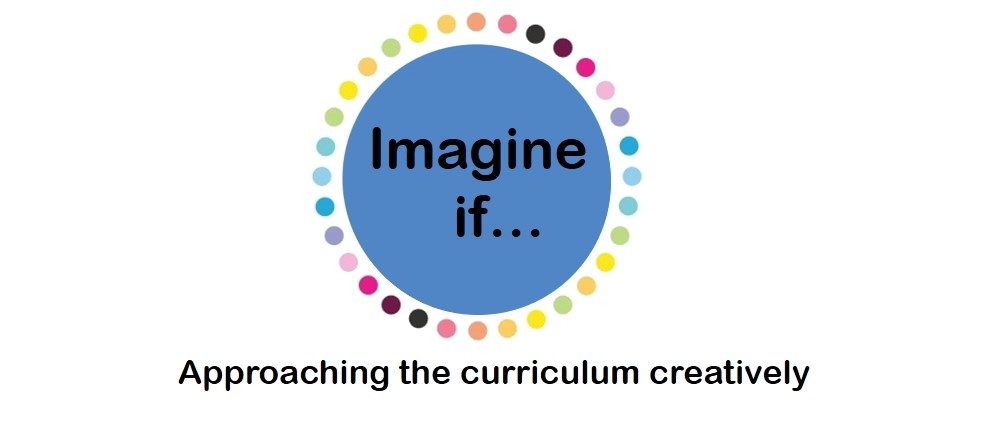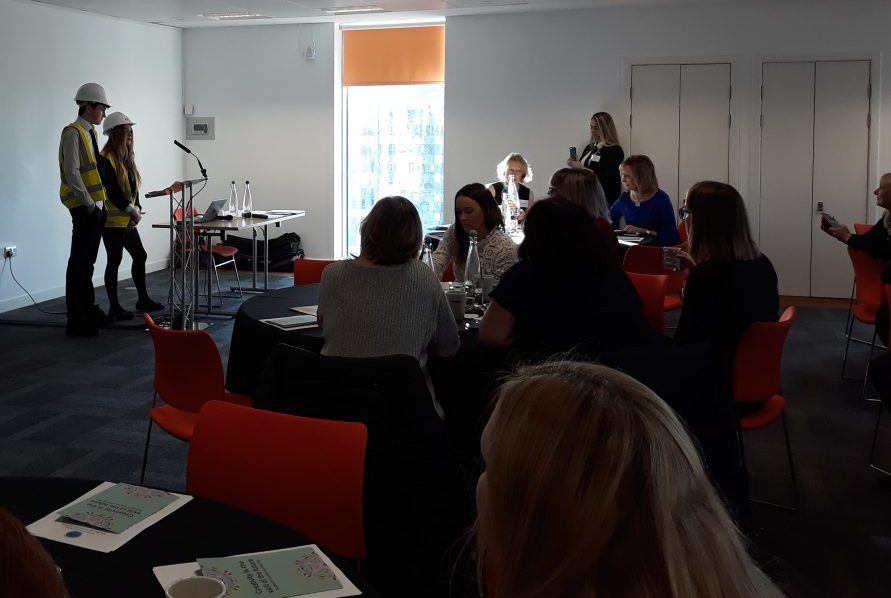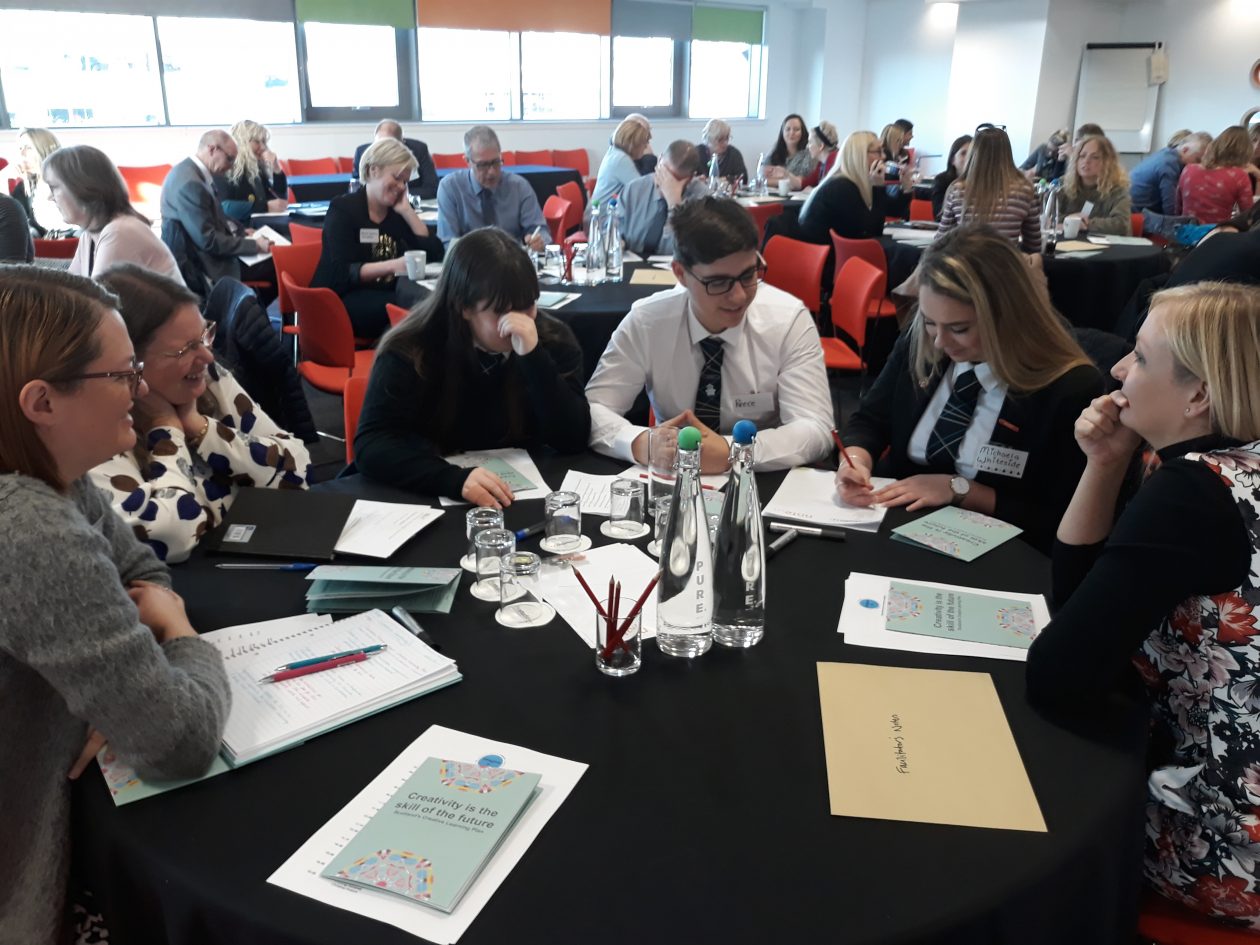
How we really listened to learners at a recent National Creative Learning Network event
Each year at its annual event, the National Creative Learning Network takes a current priority in education and works with local authority colleagues to explore it through the lens of creativity. In previous years, we have focused on attainment; skills development, and equity. This year, our attention turned to the curriculum – ‘curriculum’ meaning the totality of our education offer to young people. We wanted to know what they think of it and to talk about how it might be improved.
Our two ‘must haves’ were:
- Learner voice – in order that professional dialogue was informed by children and young people’s experiences of education.
- Creativity – it was essential that we adopted creative approaches and delegates were immersed in creative thinking from the outset. This meant not planning the content in advance, rather, having a framework within which conversation, ideas and reflections could flow, the content being generated through the power of the relationships and dialogue between the people in the room.
Our aims were to:
- inspire, challenge and engage
- equip delegates to be better able to deal with challenges in their own local contexts;
- increase understanding of creativity and the role Creative Learning Networks can play in effective partnership working.
Imagine If…..workshops
Key to the success of the day, was the involvement of children and young people. Education Scotland’s Creativity Team devised a workshop that took place in Friockheim and Arkleston primary schools and Calderglen secondary school prior to the event. As expert ‘users’ of the education system, learners were asked to draw on the best and worst of their experiences, and use blue sky thinking to imagine their ideals, and to generate ‘Imagine if….’ statements to share their views and ideas.
Learner voice
Creative Learning Plan Chair, Christine Pollock, invited fifteen young people representing the three schools to take to the stage.
Delegates heard from pupils about their very positive experiences of undertaking a Civil Engineering Foundation Apprenticeship, which means they spend a third of their time in school, a third in college and a third with an employer. Being able to make clear links between all three was motivating for them and they spoke with confidence and purpose.

Next up, primary and secondary learners shared their own and their peers’ ‘Imagine if’ statements, which were at once funny, ambitious, thought provoking, profoundly moving and wonderfully creative. Here are just a few examples:
Imagine if the school was on a cruise and you learnt going to every country in the world and experiencing the culture.
Imagine if every day felt the same as when I got selected for the soccer sevens.
Imagine if school didn’t put massive pressure on exams. Imagine if it was OK to fail.
Imagine if instead of schools we learned through experiencing new things – through using creativity to work things out on our own.
Imagine if school was about skills, experiences, opportunities for everyone regardless of talent or ability. Each pupil reaches their own personal targets.
Imagine if we could always feel the buzz of inclusion like school shows and fundraising events.
Imagine if there were new ways to meet new people every day and to be able to develop with them.
Delegates reflected on and discussed their responses to the young people’s statements, and had the opportunity to ask further questions of the learners who joined table discussions as equals. Facilitated by a CLN coordinator (local authority creative learning lead), each group was invited to identify a key theme they would like to put forward for the focus of deeper discussion in the afternoon.

Emerging themes for afternoon workshops were:
- Imagine if we, in real terms, Get It Right For Every Child
- Imagine if we could improve relationships in school between teachers and learners and learners and learners
- Imagine if we listened to learners
- Imagine if every learning experience was fabulous – what would that look like, sound like, feel like
- Imagine if the curriculum was bigger than the school
- Imagine if we could improve our learners’ mental wellbeing at school in a meaningful way
- Imagine if the curriculum offer was driven by the learners
Delegates self-organised into themed workshops groups, each of which was led by a facilitator who used creative tools and techniques, and drew on the views of the young people, to support exploration of their specific theme.
Through a final reflection, we discovered that the following themes had been discussed across a number of the workshop groups:
- Who has the voice?
- A clear understanding of what curriculum means
- Interdisciplinary learning/different learning environments
- The importance and impact of positive relationships (teacher- pupil and pupil-pupil)
- Time and space to reflect and innovate
- Be brave and take risks in leadership – new options / personalisation and choice / timetabling / flexibility / collaborative planning
- GIRFEP (Person)
- Quality of listening
To help close the event Calderglen pupils were invited to share:
- one thing they’d been surprised by
- one thing they were excited by
- one thing they were disappointed by
They took the opportunity to thank everyone, and to say how surprised they had been by how open and receptive everyone was – they really felt listened to. They were surprised more young people from other schools were not there and suggested we have just as many young people as adults – a challenge for future events.
In order to encourage ongoing engagement following this event, we invited one of the young people to issue the call for feedback, and delegates were asked to share what they promised to do in the next week, and in the next six months. Our commitment is to share actions resulting from these actions via Twitter so that the young people can see what has resulted from their contributions.
In the next week, I promise to…
- Speak to quality improvement manager to challenge council curriculum framework and enable us to “be brave” and create our curriculum – starting with “imagine if…”
- Make plans for a set of teacher and head teacher engagement meetings to explore more creative ways of learning
- Take a fresh look at the teaching approaches I use – are they enabling the best possible learning experiences?
In the next six months, I promise to…
- Implement across my teaching responsibilities a range of creative teaching and learning approaches and gather feedback/voice from students.
- Gather and evaluate pupils’ voice in preparation for School Improvement Plan 2019/20 being about curriculum improvement – involving all stakeholders.
- Raise the profile of creativity in my local authority in particular at senior leadership level. Organisation of a conference with theme of creative leadership.
For us, the standouts were:
- The buzz, enthusiasm and engagement in the room throughout the event.
- The input from young people throughout the day. Calderglen HS were an example of what we all strive for in their participation and leadership
- The joy of having a facilitation team who were also the end of day panel with such wide representation ( EA, SDS, GTCS, Creative Scotland, SCEL, Wood Foundation…..)
- The use of approaches and methodologies that were themselves creative.
‘An excellent, thought provoking and inspiring conference. The young people’s voice and the importance of this was a highlight of the day.’ Participant
‘The young contributors were fantastic. They were really clear about what they felt they needed from school education and teachers and also about what they had to give’. Participant
